Last Action Heroes
In which Norm tackles the new 4K editions of NO COUNTRY FOR OLD MEN and DEMOLITION MAN.
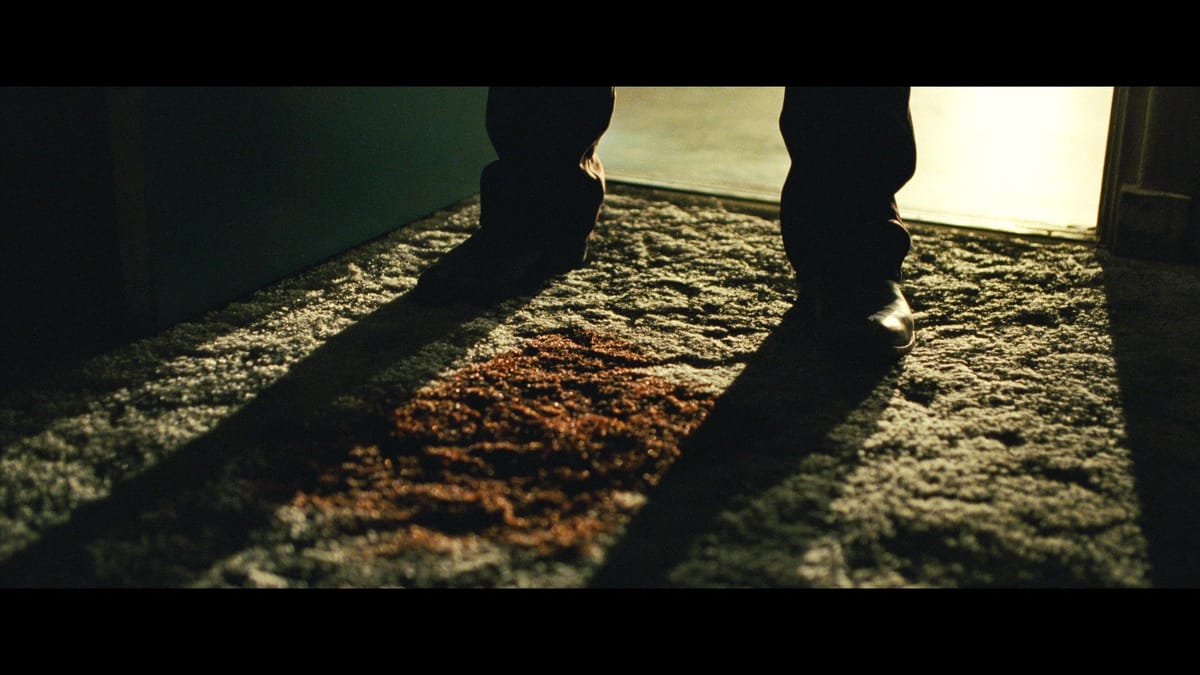
I’ve been trying to figure out how to cover the new Criterion Collection release of No Country for Old Men all month. On the one hand, it’s a new catalogue title and deserves the appropriate spotlight; on the other, it’s one of the best discs of the year and I’ve been writing that list all month. But if it had dropped at any other point on the calendar I’d have made sure to feature it, so here we go.
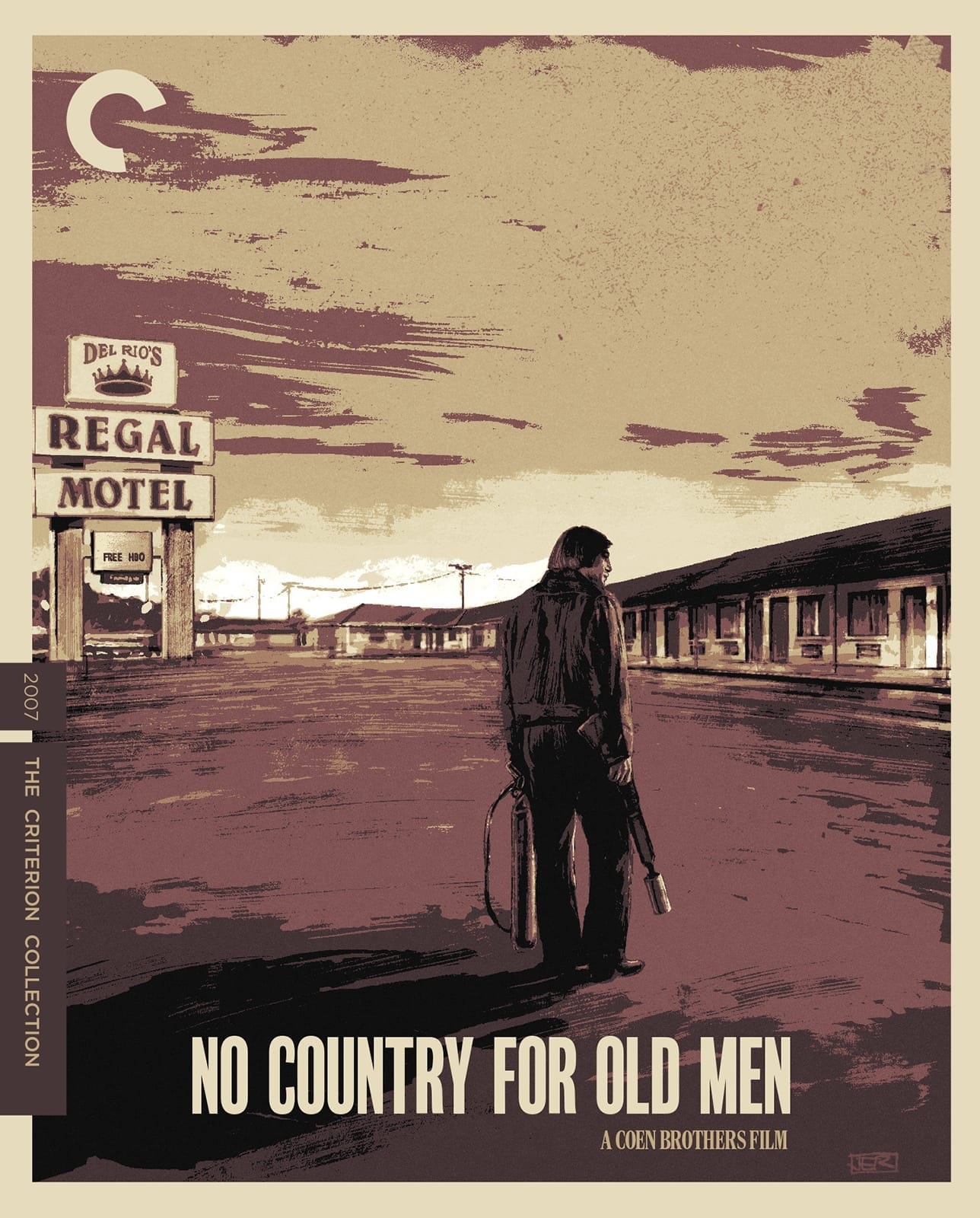
No Country for Old Men may not be the best movie Joel and Ethan Coen ever made, but like so much of their work, it sure feels that way when you’re watching it. Cormac McCarthy’s novel about the intersecting destinies of an opportunistic cowboy, a bloodthirsty bagman and an aging sheriff in Reagan-era Texas offers them a perfect vessel for their bleak and caustic worldview: The universe absolutely does not care about us, so all we have is each other … and that’s not going to save us, because we suck.
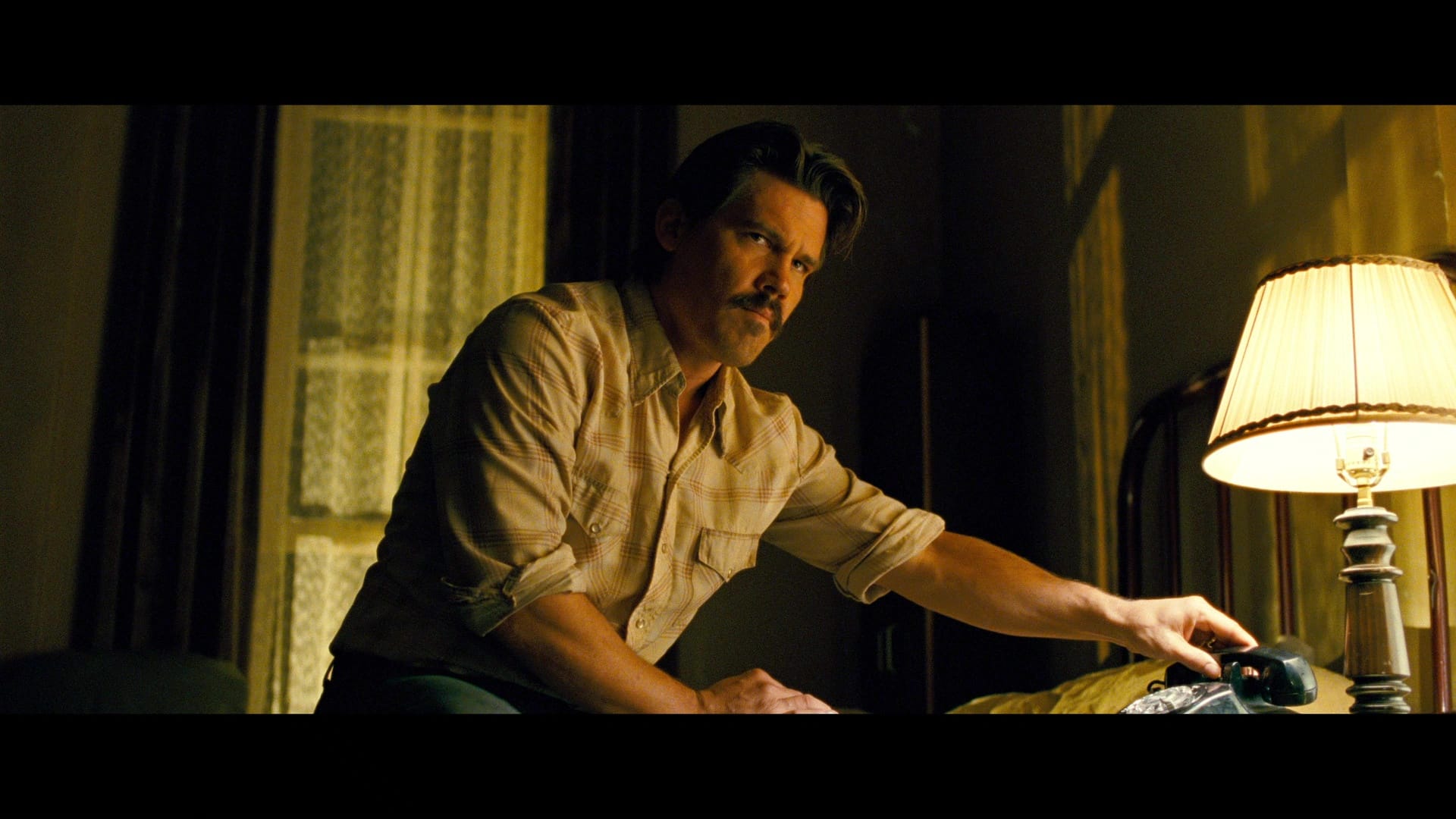
Out hunting in the middle of nowhere, welder Llewelyn Moss (Josh Brolin) stumbles across the site of a shootout, and finds a briefcase filled with cash. He takes the briefcase and hides it from his wife Carla Jean (Kelly Macdonald), unaware that dead-eyed sociopath Anton Chigurh (Javier Bardem) has been dispatched to recover the money and kill anyone who stands in his way. Meanwhile, sheriff Ed Tom Bell (Tommy Lee Jones) investigates the shootout, quickly realizes Llewelyn is in way over his head, and tries to avert further carnage. But you can’t stop what’s coming.

The Coens find the perfect cinematic representation for McCarthy’s measured, precise prose, moving deliberately through the story and directing us to observe this character, that detail, a moment of thought or reflection. The absence of an orchestral score leads us to look more closely at the actors for a sense of tone and emphasis, making the film feel even more stark. Even in wide shots, everyone’s alone.
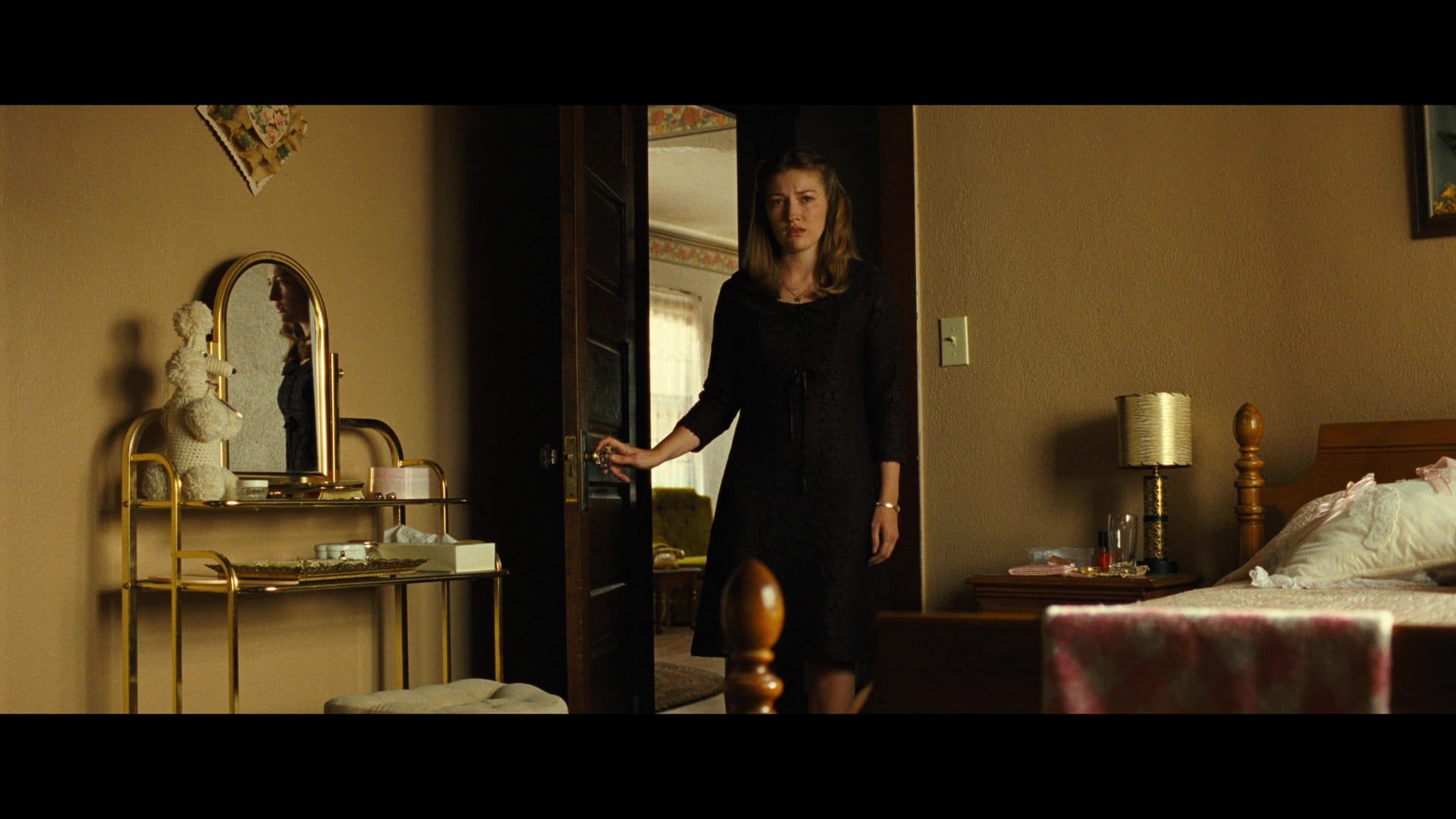
What’s also remarkable, on repeat viewings, is how separate the stories of Bell, Moss and Chigurh are: Each character is operating on his own, occasionally scraping up against another, but almost always at a distance; two of them might interact, but never all three, and of course Bell and Chigurh never, ever meet. Only Carla Jean gets to have conversations with all three of them, and Macdonald’s performance – exasperated, worried, horrified, disgusted – becomes the film’s emotional backbone. And even that will be removed by the end of the picture, as Tommy Lee Jones steps in to remind us that Ed Tom Bell is the greatest role of his storied career. It just doesn’t look like it in the moment, because we’re not supposed to notice Ed Tom Bell.
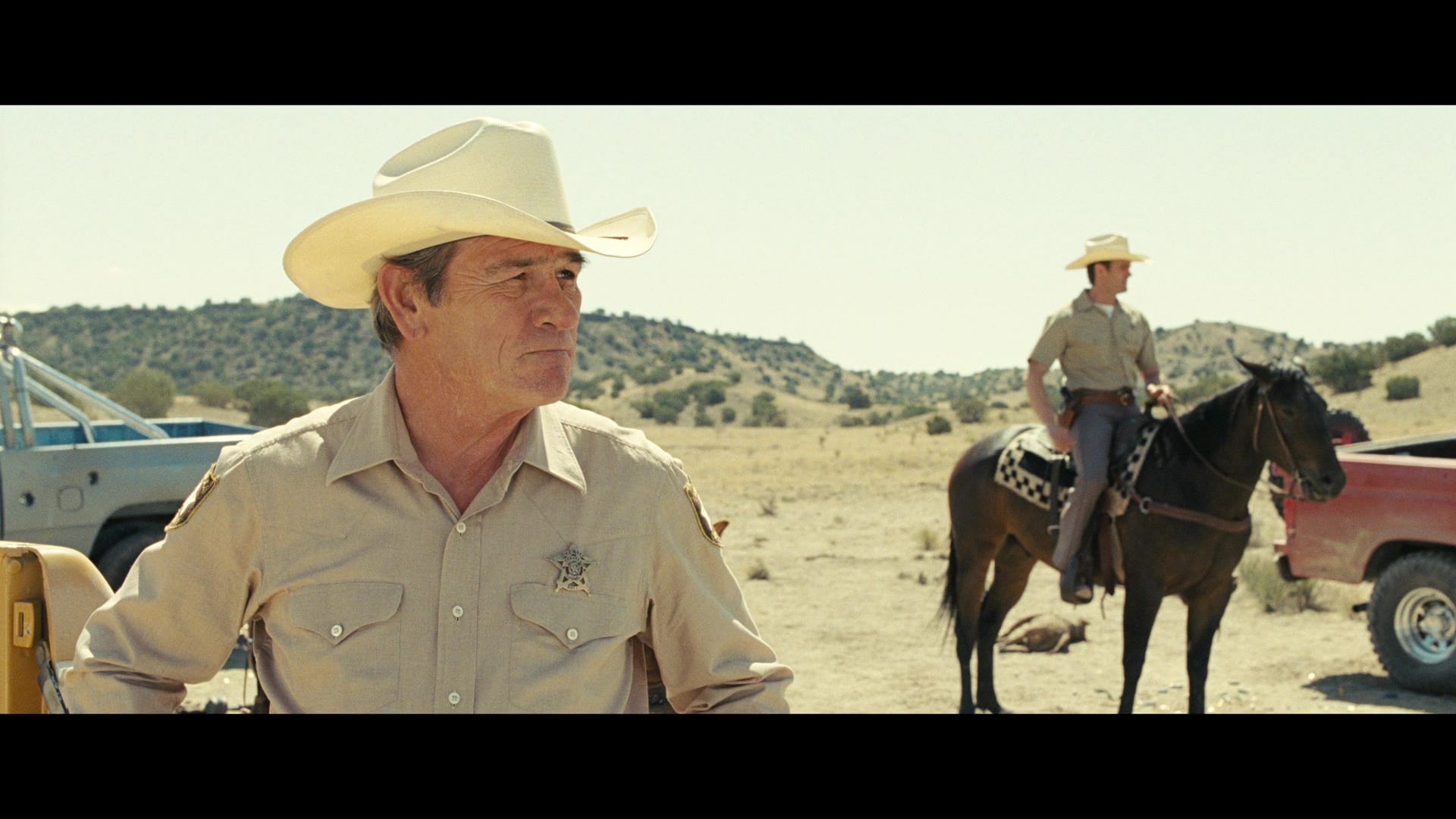
And that, I think, is the Coens’ specific genius. They’re masters of the internal performance, even in actors who can be as showboaty as Jones often is. I just revisited The Ballad of Buster Scruggs the other night, and that film is made up of near-silent or isolated performances, with actor carrying a scene or an entire segment in their bodies: James Franco and Liam Neeson have a handful of lines apiece in their chapters, Tom Waits yammers to himself for 95% of his, and Zoe Kazan’s terrified silence in hers is everything we need to know about the world her character inhabits. And that film’s final segment is all about people sitting with their thoughts, of course.
For all the chases and shootouts in No Country for Old Men, its best moments are also the ones where people stop and think – and the ones where people try to think about what to say or do next are the source of most of its tension. I haven’t even mentioned how great Woody Harrelson is in his scene with Bardem, have I? Just another moment of perfect casting and execution from the Coens. Christ, but they’re good at what they do.
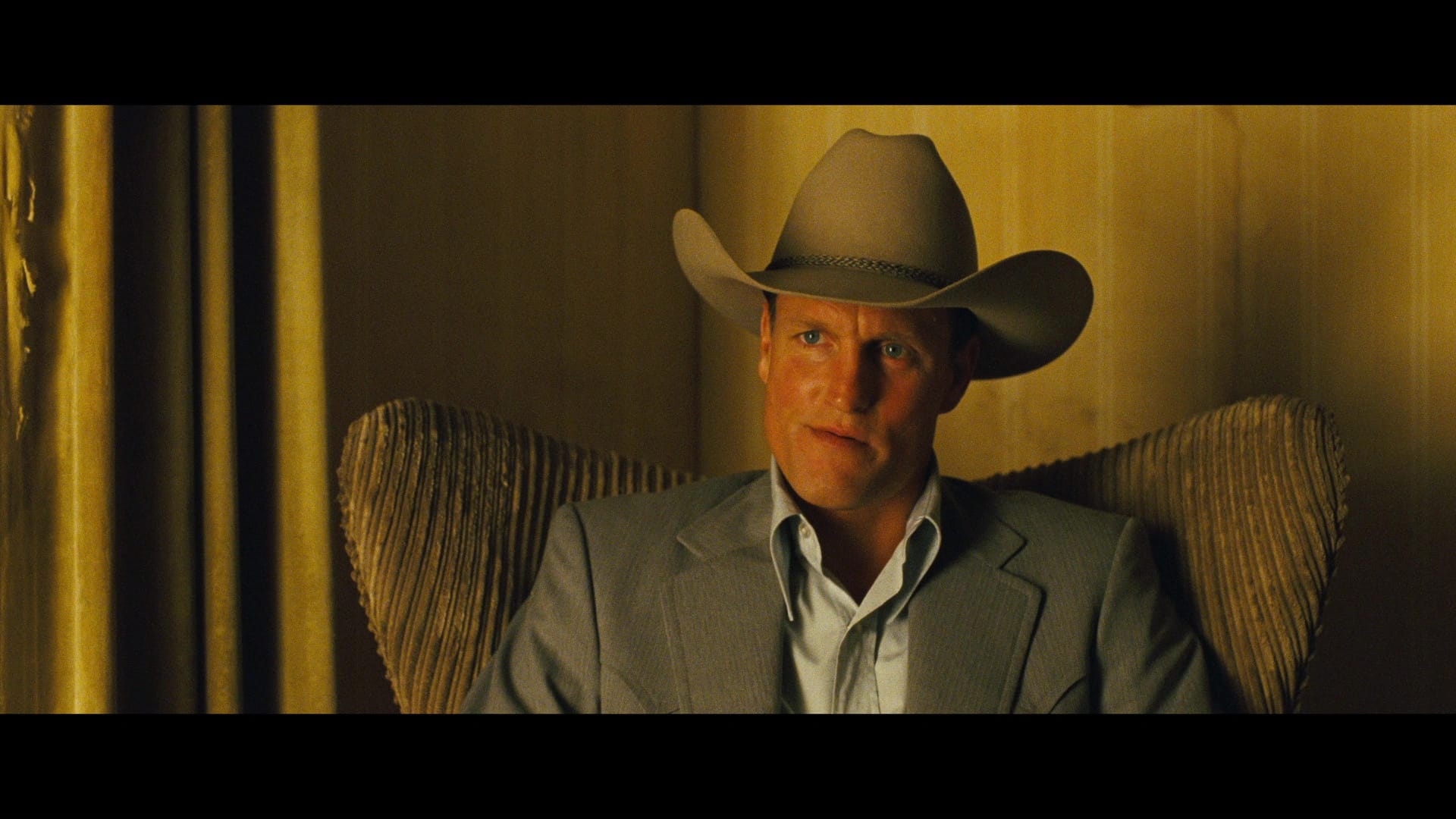
No Country for Old Men had been out of print for years while the Miramax catalogue was kicked around, but Criterion brings it roaring back to life in a Deakins-approved 4K master that finds new previously untold depths and subtleties in its bleached landscapes and impenetrable shadows. It’s a splendid presentation of a beautifully crafted film – and while this one avoids the glossier and more burnished aesthetics of Coen projects like, say, Miller’s Crossing or True Grit, it’s no less meticulous in its composition and execution.
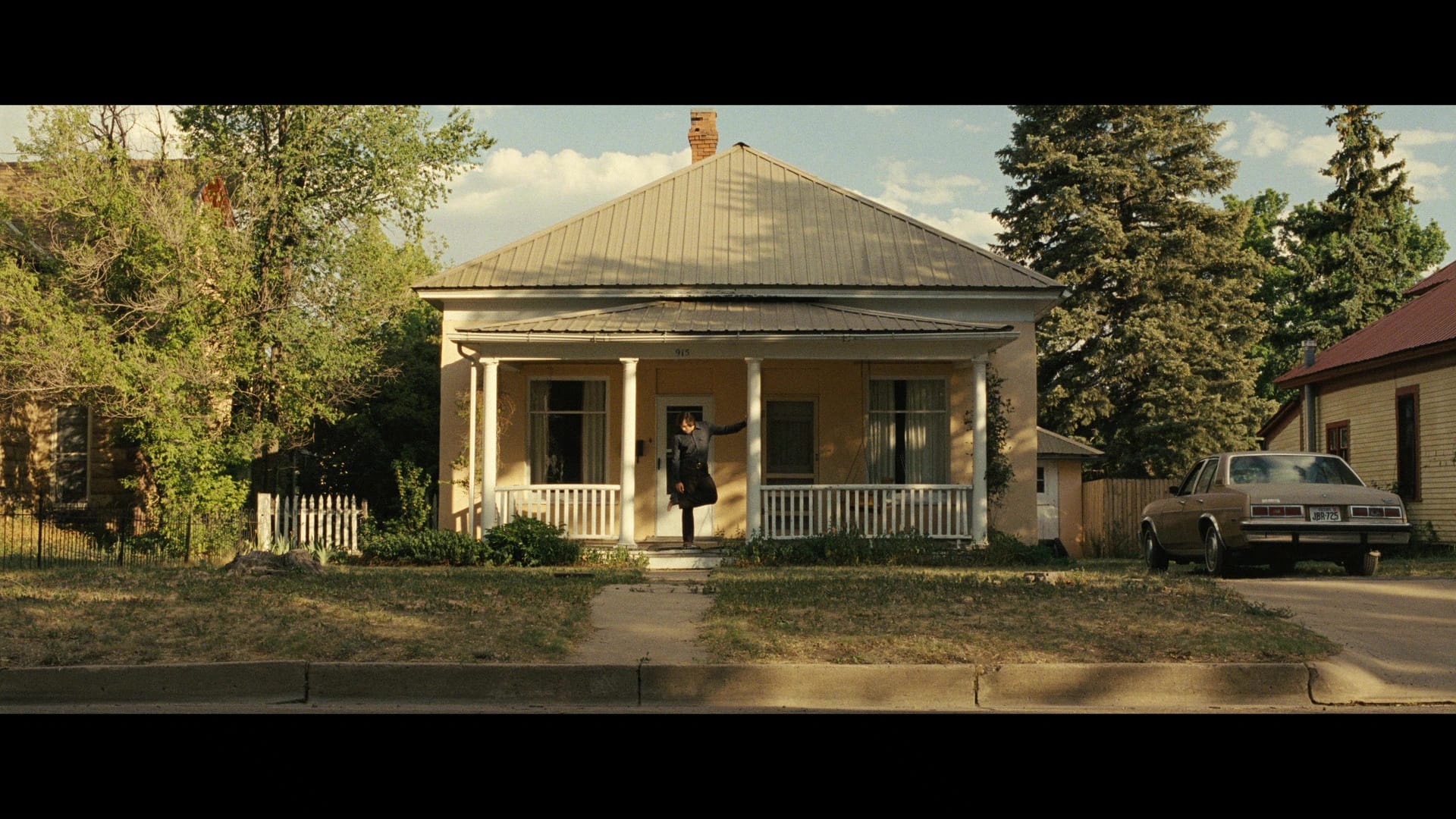
The new master also brings out the pastiness in Bardem’s makeup as Chigurh, making it clear he’s either slathered in sunscreen – unlikely in 1980 – or somehow immune to the rays of the sun, which is a much more unsettling notion.
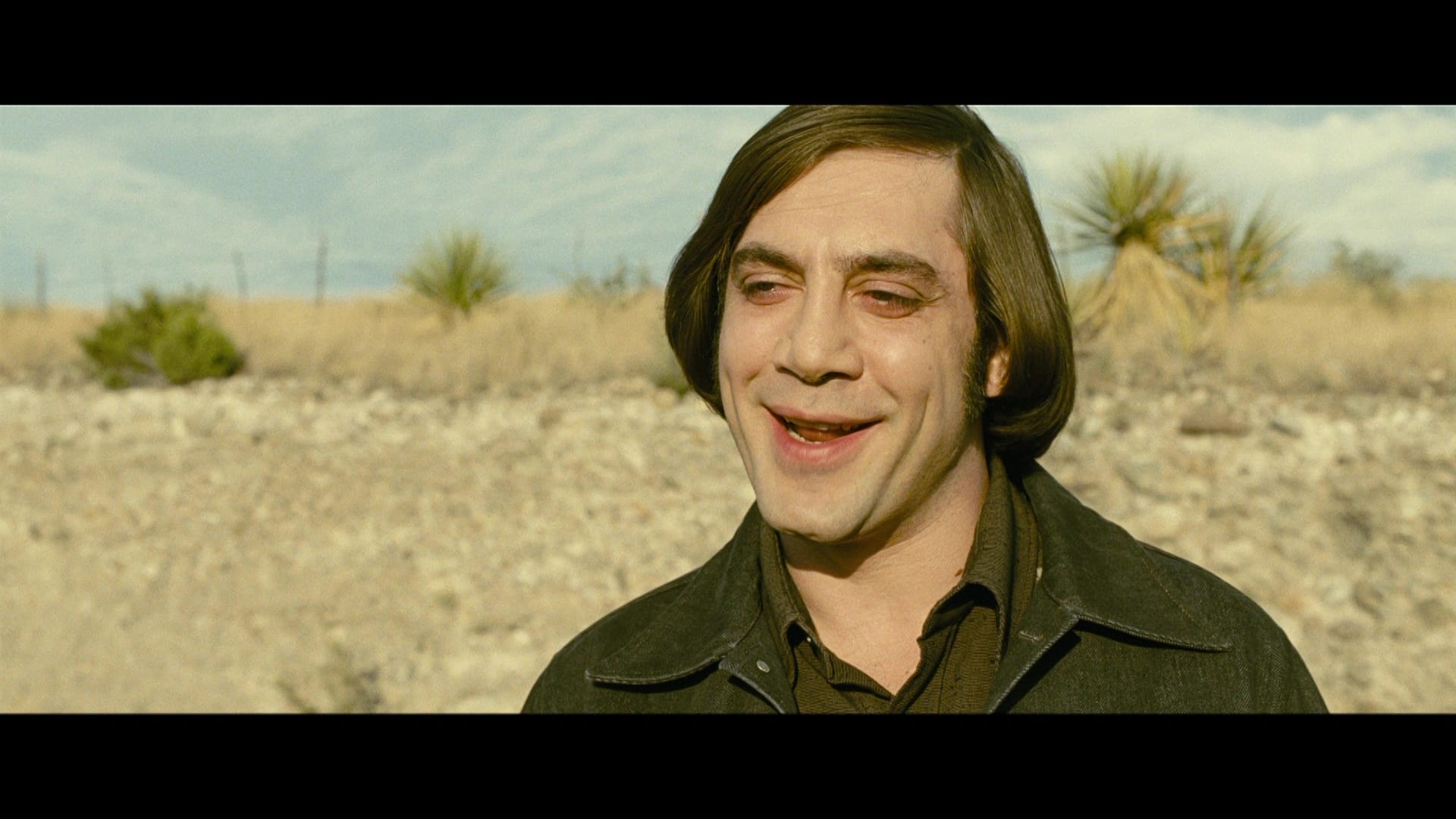
In addition to the bulk of the supplements from Disney’s earlier Blu-ray releases – a half-hour making-of, shorter featurettes with Bardem (“Working with the Coens) and Jones (“Diary of a Country Sheriff”) and a fun little fly-on-the-wall doc shot by Brolin that appeared on the collector’s edition reissue – Criterion also includes 25 minutes of EPK interviews with Bardem, Brolin, Jones and Macdonald and two excellent new pieces: A 40-minute conversation between the Coens and author Megan Abbott, and a half-hour audio interview in which Abbott talks to Deakins and associate producer David Diliberto, who is better known as the enabler of Roderick Jaynes, the Coens’ editorial pseudonym. Abbott approaches the film with a fan’s love as well as an author’s eye for detail, and in both pieces manages to pull stories out of her subjects from unexpected angles.
It also occurred to me that “No Country for Old Men” is a perfectly appropriate title for Marco Brambilla’s Demolition Man, given its central, preposterous conceit that Sylvester Stallone’s ’90s supercop John Spartan suddenly finds himself a man out of time after 35 years in cryogenic preservation. (That said, I’ve spent thirty years insisting Last Action Hero is the perfect title for this film, and the Schwarzenegger picture that actually used it should have been called Demolition Man. But no one listens to me.)

Demolition Man is very much a movie of 1993, a sci-fi action pitch rewritten into something like genius by Daniel Waters at the end of a run of such cult classics as Heathers, The Adventures of Ford Fairlane, Hudson Hawk and Batman Returns – and yes, Ford Fairlane is a goddamn great script, and if it had been shot with Denis Leary in the lead instead of Andrew “Dice” Clay, we’d remember it a lot more fondly.
In the far-flung world of 1996, the committed Spartan tries to stop his arch-enemy, the super-criminal Simon Phoenix (Wesley Snipes, basically playing his version of the Joker), from slaughtering some hostages; everything goes wrong, and both Spartan and Phoenix wind up sentenced to be Popsicled until such time as they can be rehabilitated. But when Phoenix is defrosted in 2032 and unleashed on the pacified utopia of San Angeles, the local authorities realize Spartan is the only person who has the skills to stop him – despite the fact that he’s basically a caveman in this scrubbed-clean future society.
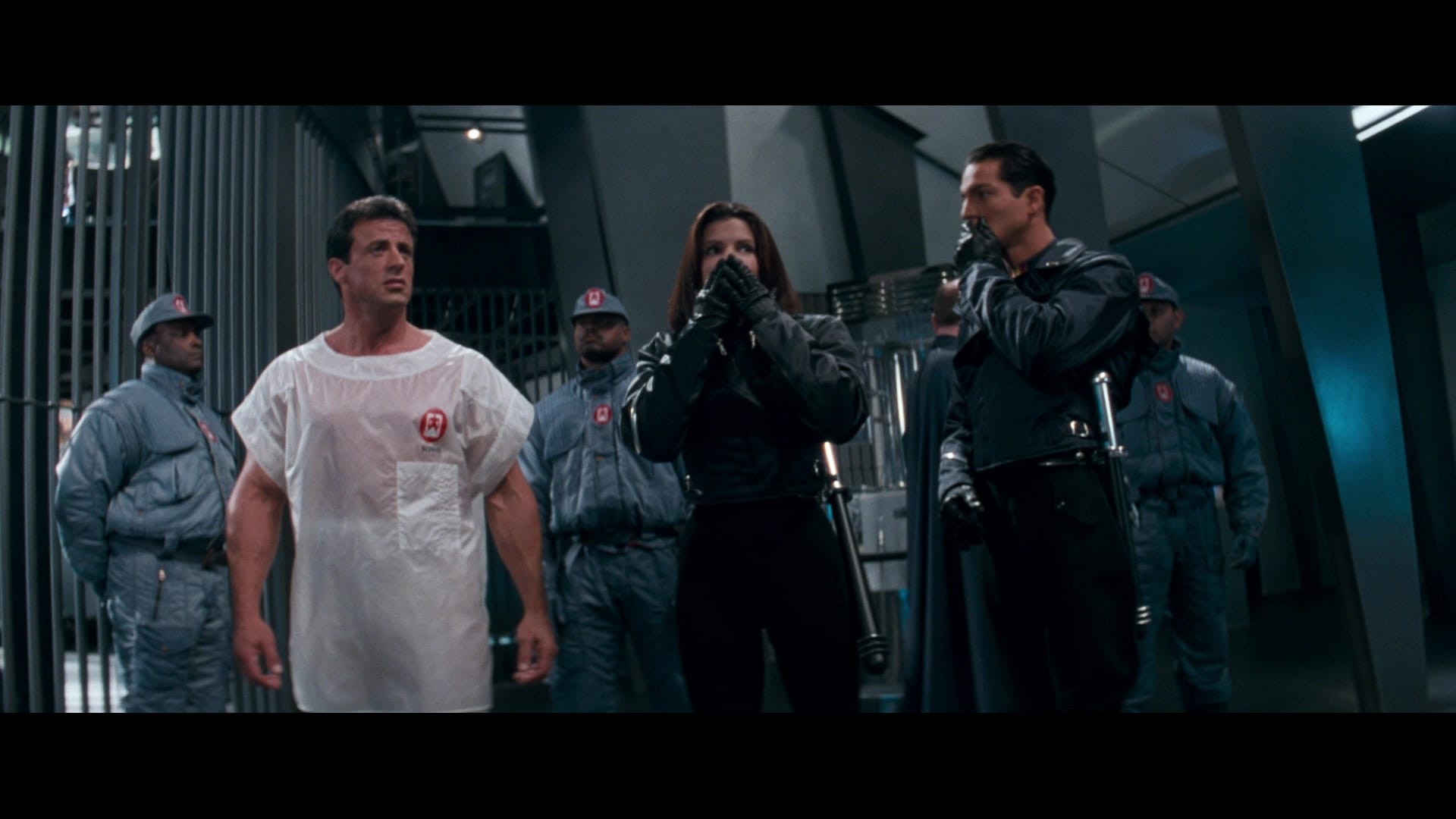
Weirdly enough, Stallone – who always struggled with comedy – was perfect for this project, a straight man who grows increasingly crankier with the incomprehensible world around him. Why can’t you swear any more? Why are all restaurants Taco Bell? What’s the deal with the three seashells?
Waters gets a lot of mileage from Spartan’s constant griping about the good old days when you could just shoot a perp without worrying about warrants or due process without ever endorsing his point of view, and Stallone doesn’t try to put anything extra on the dialogue; he just grumps it out and lets the comedy come from his co-stars.
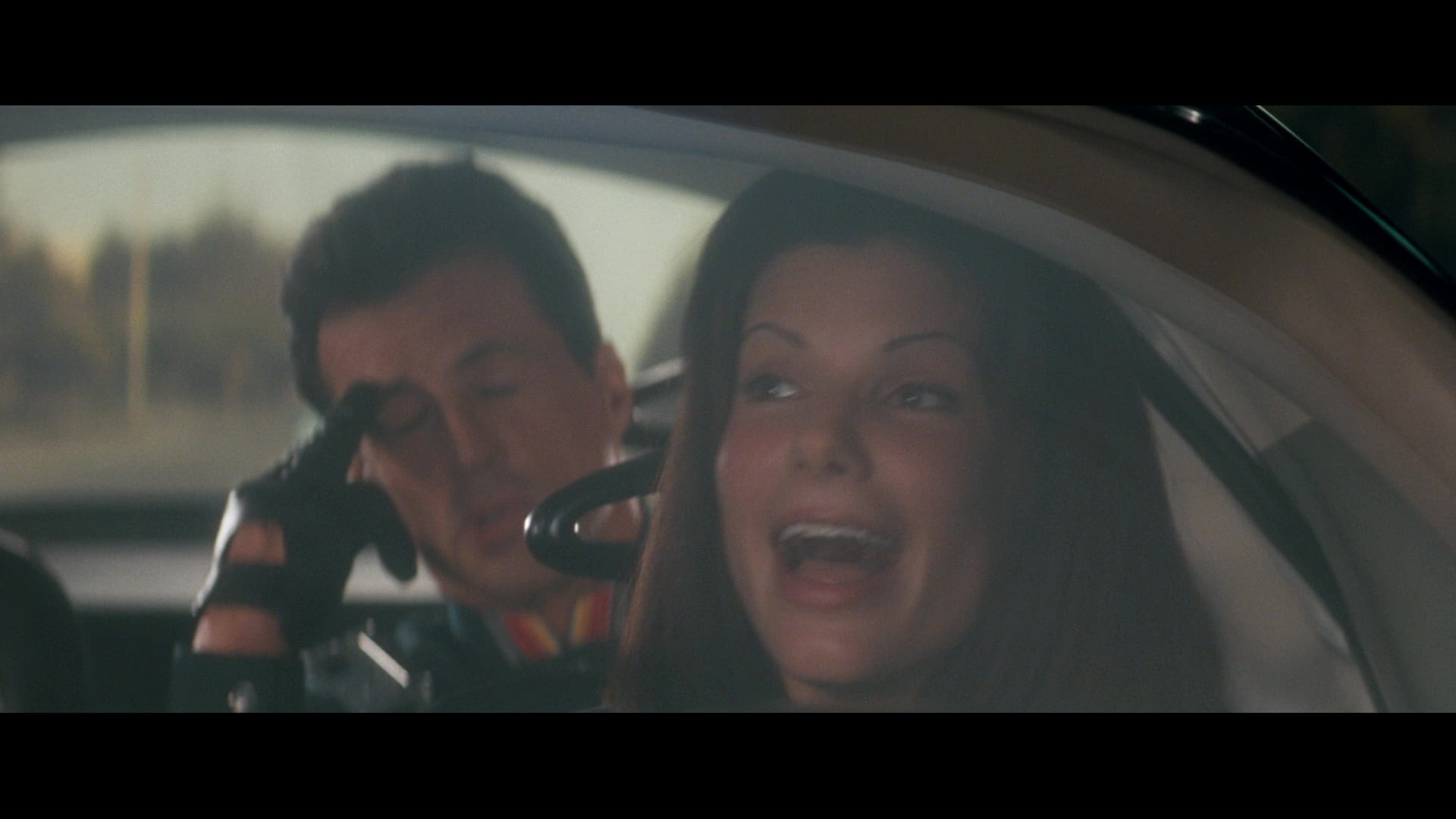
Which brings us to Sandra Bullock, in that tiny little window of “Who’s that? She’s great!” she enjoyed before Speed launched her to proper stardom. She’s playing Lenina Huxley, a future cop who’s not quite old enough to be Spartan’s daughter – though the film does seem to be setting up that possibility at one point, at least until their extremely awkward attempt at virtual sex. (It turns out Lenina just loves explosions, and has been waiting for one her entire life.)
Benjamin Bratt is also around as a cop called Alfredo Garcia – like I said, Waters had a lot of fun writing this one – and of course Snipes cannot go big enough as the goofball maniac Simon Phoenix, who’s been enhanced during his cryonic stasis to be even more clever and murderous.
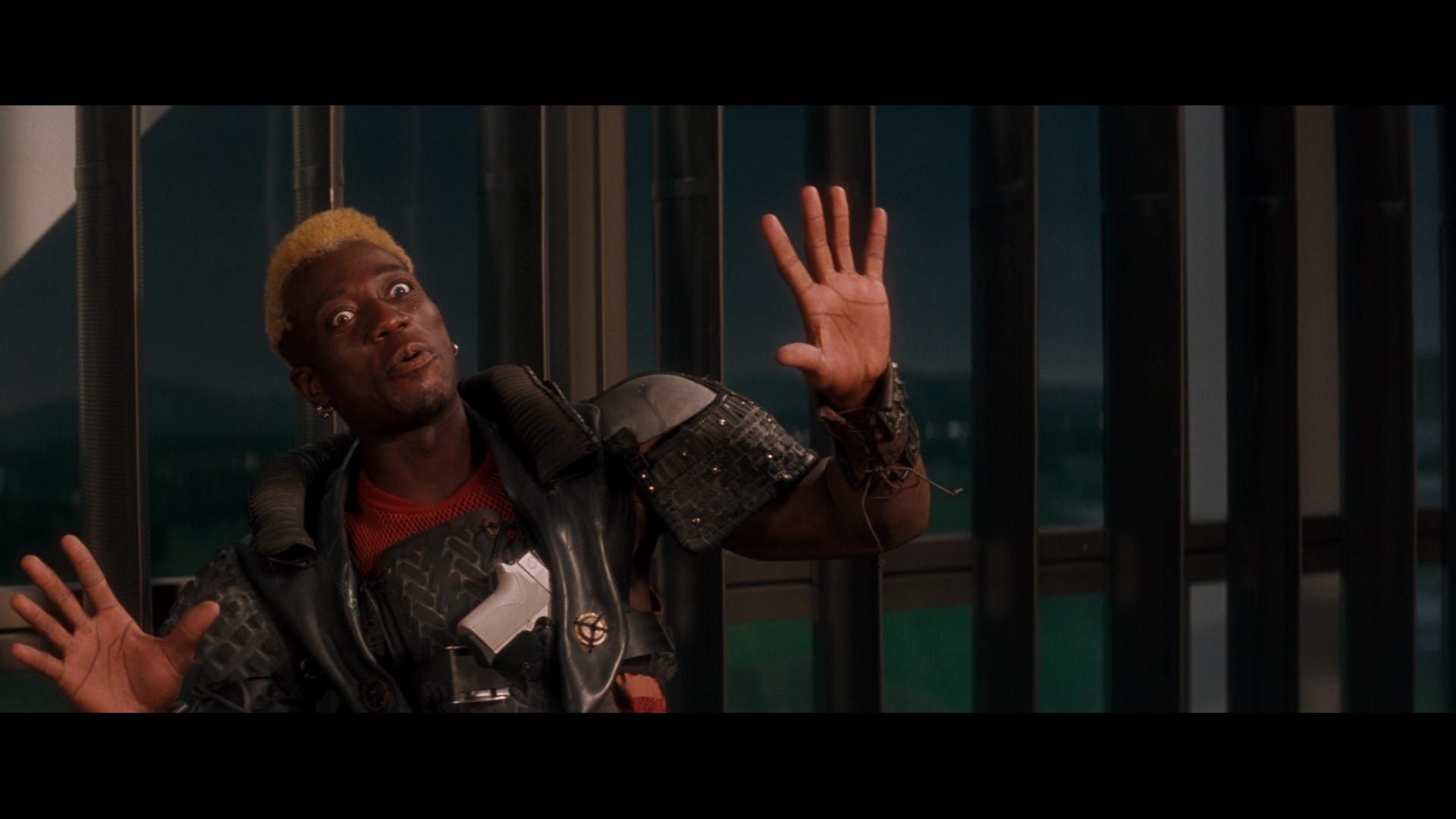
Spartan, on the other hand, has been imprinted with stress-relieving mechanisms to curb his own violent tendencies:
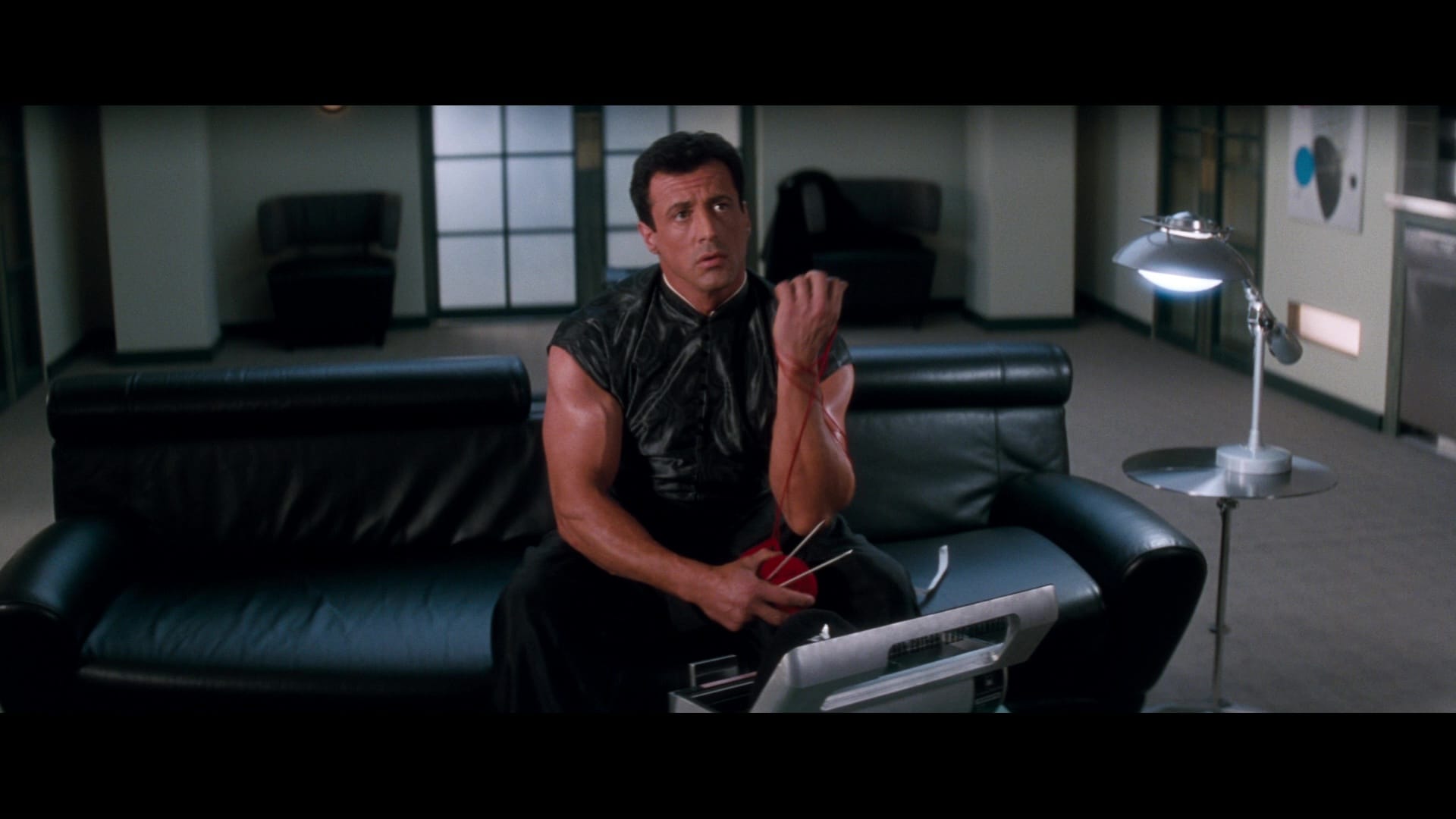
I mean, what more do you want from a dystopian action comedy? André Gregory? Nigel Hawthorne? Jesse Ventura? Because they’re all here too. (So is Rob Schneider, who apparently followed Stallone over from Judge Dredd.)
Arrow’s edition of Demolition Man is a major improvement over the 2011 Warner Blu-ray, letting us fully appreciate veteran cinematographer Alex Thomson’s machine-tooled visuals.
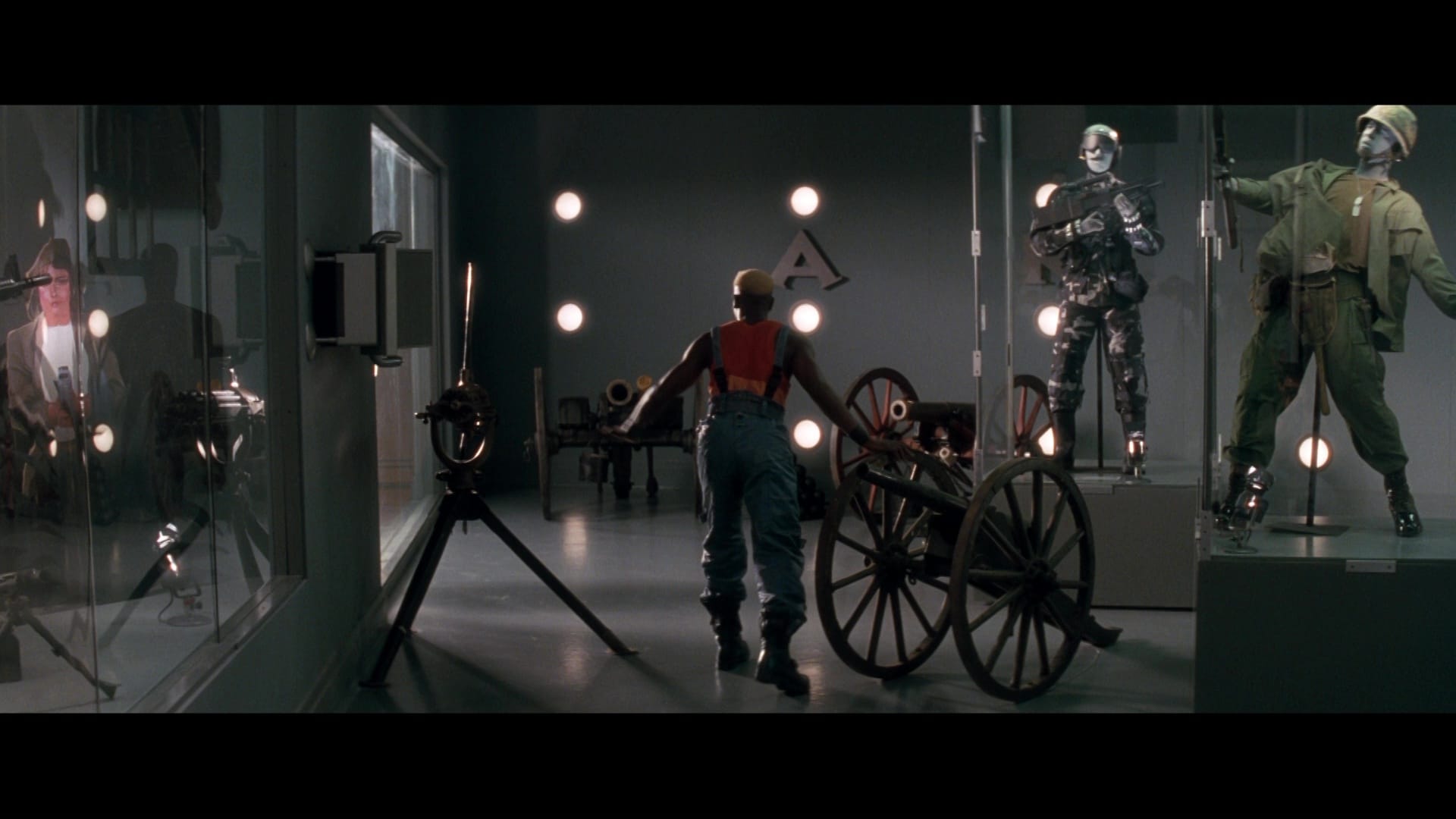
Thomson was in his early sixties when he shot the picture, near the end of a career that included everything from Dr. Phibes Rises Again and Death Line to Excalibur and The Keep, and while it’s possible to argue this one was an easy gig after Alien 3 and Cliffhanger, he’s having a lot of fun with the colors and textures of a corporatized, totalitarian future. This is one of those projects where everyone has to be on the exact same page for it to work, and even if Stallone was slightly resistant to some of the bigger ideas, his discomfort actually plays for the character of John Spartan.
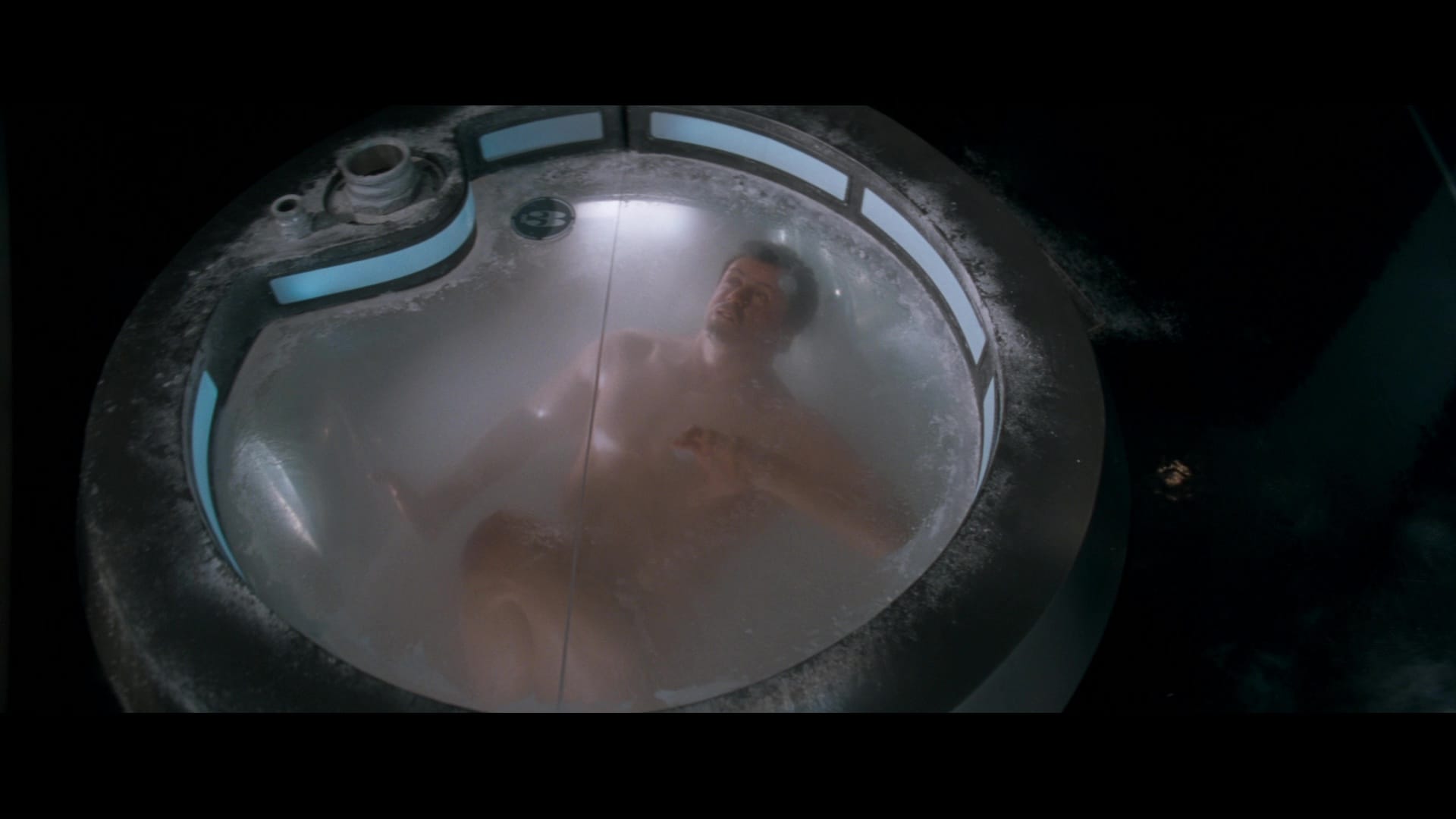
This release is also the first to offer both the North American and international versions of Demolition Man – not because one is more graphic or provocative, but because every mention of Taco Bell in the original cut as the future’s only restaurant brand was replaced overseas with Pizza Hut, which had the global presence that Taco Bell did not. And it wasn’t just a post-production trick of re-recording dialogue; scenes were shot twice with different signage, and the Pizza Hut materials are slapdash in a way that becomes much funnier on repeat viewings.
As is now tradition, Arrow has commissioned a buttload of new special features, starting with reuniting Brambilla and Waters for a retrospective audio commentary that celebrates their achievement – now that the world accepts it, of course. (An archival commentary by Brambilla and producer Joel Silver, recorded in 1997 for the DVD release and also included here, is slightly more defensive.)
There’s also a new track from The Projection Booth’s Mike White, a quartet of new interviews with production designer David L. Snyder (“Demolition Design”), stunt coordinator Charles Percini (“Cryo Action”), makeup effects artist Chris Biggs (“Biggs’ Body Shop”) and effects coordinator Jeff Farley (“Tacos and Hockey Pucks”), and a visual essay from Josh Nelson with the absolutely magnificent title “Somewhere Over the Rambo”.
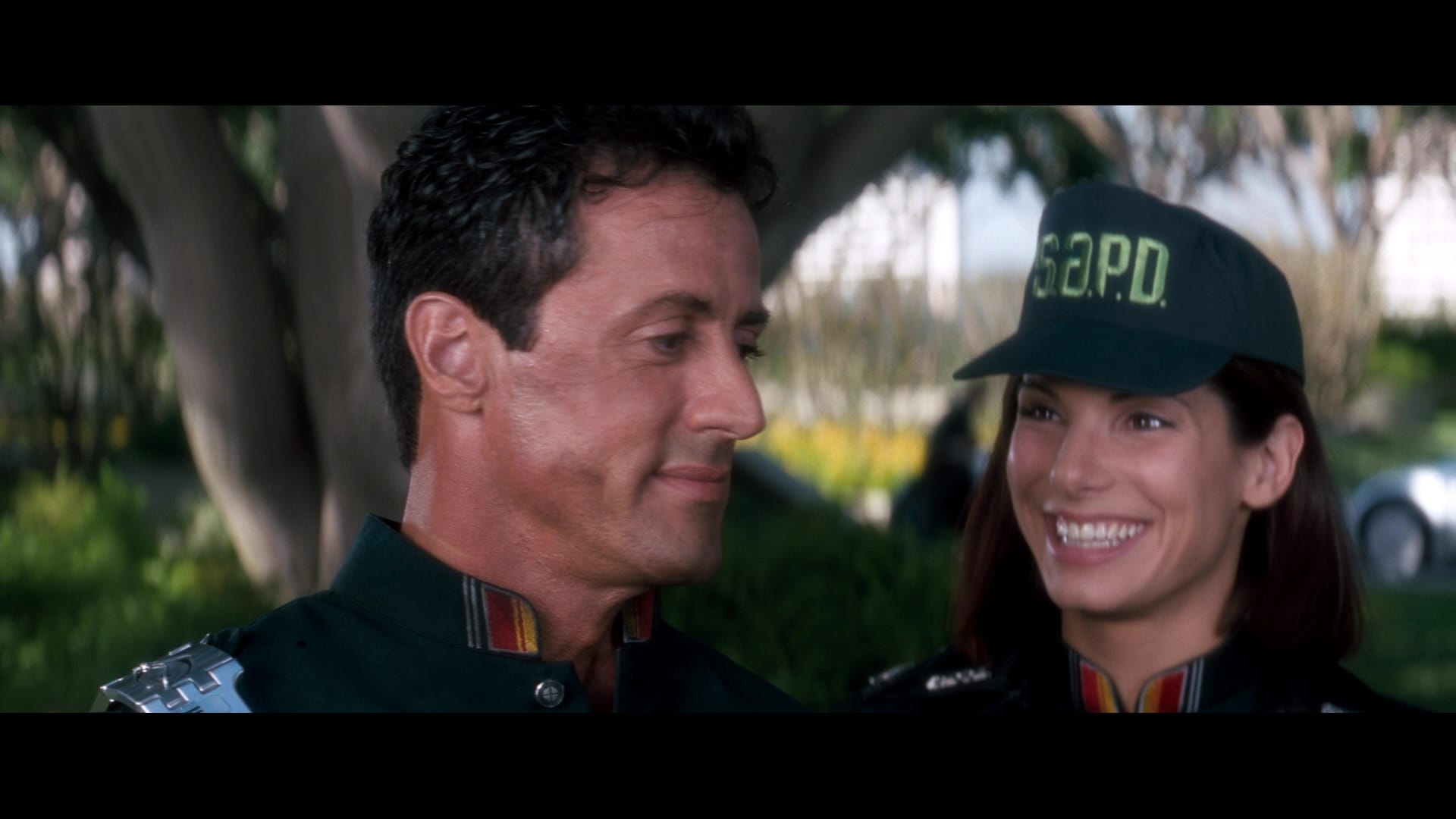
The limited edition package comes with a 60-page book of essays, a foldout poster, art cards and stickers for the three seashells. We will never learn how to use them, and I am fine with that. Some things stay secret for a reason.
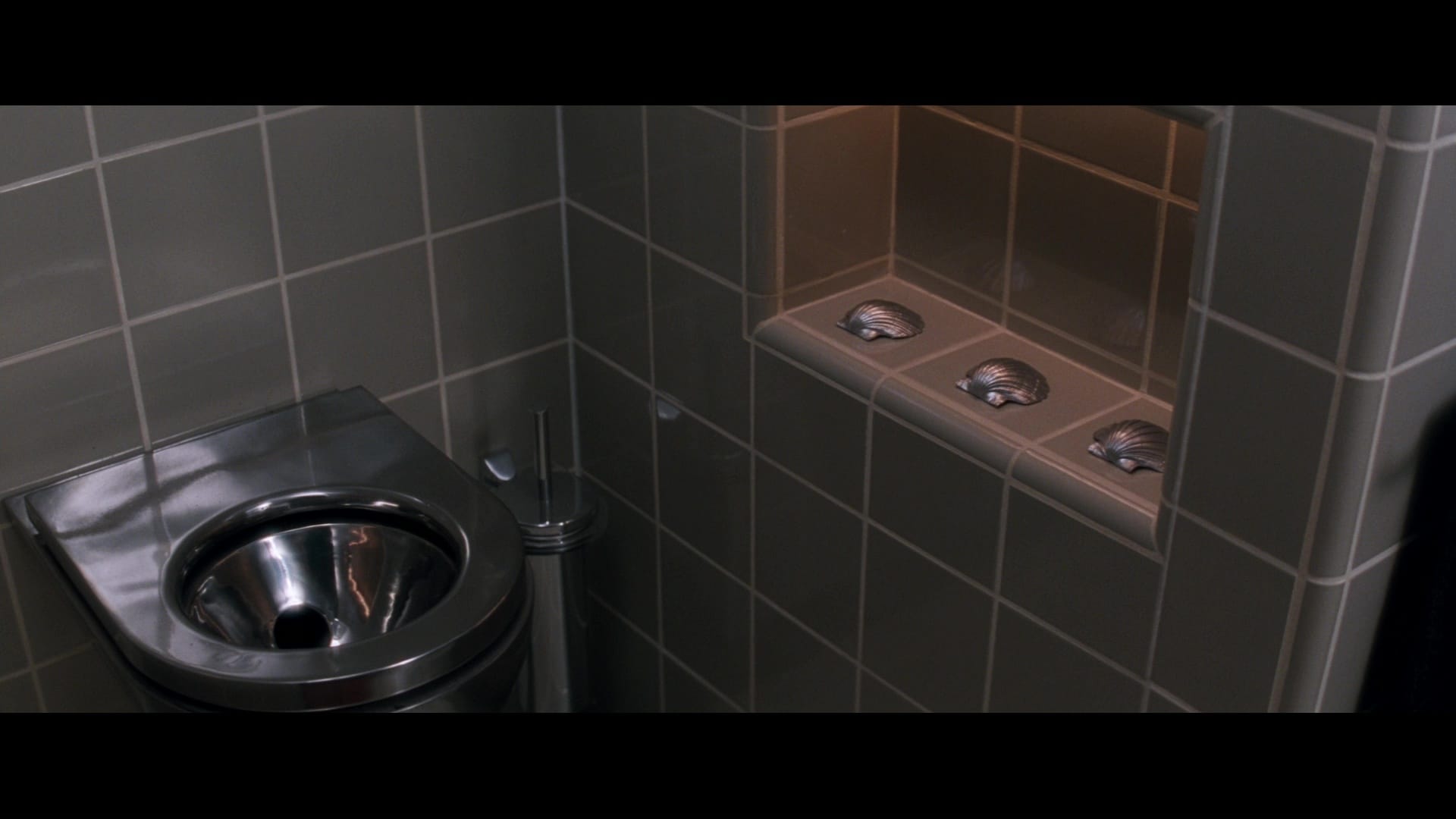
No Country for Old Men is available in 4K/Blu-ray combo and Blu-ray editions from the Criterion Collection; Demolition Man is available in separate 4K and Blu-ray editions from Arrow Video.
Up next: The best discs of the year, and the best films of the year. In a way, we’re all winners!
